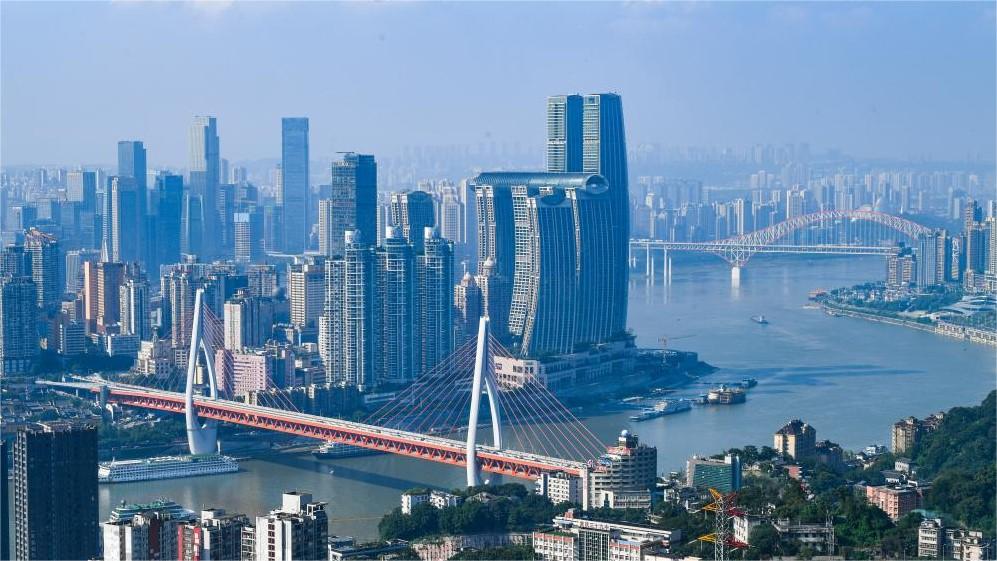Japan’s implementation of OSA framework with Manila is anti-peace, a cause for concern
According to NHK, Japan has decided to provide the Philippines with maritime surveillance radar and other equipment, marking the first application of the Official Security Assistance framework (OSA) by Japan. This move - driven by Japan's desire to create chaos and provoke conflicts - will further escalate tensions in the South China Sea, which is detrimental to peace and security in East Asia.
Japanese media believe that Japan's move is aimed at strengthening its relationship with the Philippines in order to contain China's maritime military activities. Japan's shift from Official Development Assistance (ODA) to the OSA framework means that its previous economic diplomacy in Southeast Asia has shifted toward security and defense diplomacy.
Japan has been trying to break through the restrictions on arms exports, and the implementation of the OSA framework with the Philippines is one of Japan's attempts, which can only fuel regional conflicts. Lü Yaodong, a researcher at the Japan Institute of the Chinese Academy of Social Sciences, told Global Times that "Japan will continue to seek various opportunities to break through the restrictions on arms exports."
The OSA framework - officially implemented in April this year - is Japan's new aid policy aiming to provide defense equipment to the armed forces of like-minded countries, which is different from the ODA previously provided by Japan to developing countries for non-military purposes only. It's reported that Japanese Prime Minister Fumio Kishida plans to visit the Philippines on November 3 and 4 and will propose providing maritime surveillance radars to the Philippines based on the OSA framework. Natsuo Yamaguchi, the leader of the Komeito, visited the Philippines in August and announced the provision of large coastal vessels to the Philippines. Japan's so-called assistance to friendly forces has no other effect in addition to fueling conflicts in the region. This implementation of the OSA framework in the Philippines is an obvious manifestation of this.
Japan's actions do not adhere to the "positive pacifism" it claims. On the contrary, by providing defense equipment to Southeast Asian countries, especially those involved in the South China Sea issue, through the OSA framework, Japan is creating a tense situation in the region, which is anti-peace. Da Zhigang, director of the Institute of Northeast Asian Studies at the Heilongjiang Provincial Academy of Social Sciences, believes that Japan hopes the Philippines will act as a vanguard in stirring up the South China Sea, create conflicts, and contain China, while the Philippines wants to rely on external forces to gain leverage.
Although there is a Treaty of Mutual Cooperation and Security between the US and Japan, the US turns a blind eye to Japan's breaking of restrictions on arms exports and even supports it. Lü believes that after the US supported Japan's lifting of the ban on collective self-defense rights, the US has actually tacitly approved Japan's actions in breaking the "Three Principles on Arms Exports." In the strategic context of the competition between China and the US, the US actually welcomes its allies to enhance their military capabilities to share the demands of regional strategic balance and tactical adjustments in military equipment. Da believes that US' tacit approval of Japan's breakthroughs in certain areas is a consideration for using allies to maintain its advantage in great power competition.
Japan's consecutive actions to export defense equipment are intended to escalate regional conflicts, create incidents and cause chaos. Japan's implementation of the OSA framework with the Philippines is another manifestation of Japan's push for military normalization by breaking the "article 9 of the Japanese constitution." Japan will not stop here but will continue to seek breakthroughs under various pretexts. Although there is opposition to constitutional amendments among the Japanese public, the various actions taken by the Japanese government to promote the revision of the "Three Principles on Arms Exports" and even the implementation of military normalization are still a cause for concern.
Photos
Related Stories
- Chinese vice president meets former Japanese prime minister
- China, Japan exchange congratulations on 45th anniversary of peace, friendship treaty, a ‘significant move’ in stabilizing tense ties
- Scientist voices concerns as New Zealand continues to import seafood from Japan
- Nearly 208,000 Chinese tourists visit Philippines in Jan.-Sept.
- China urges Philippines to stop deliberate, provocative actions in South China Sea
- The Philippines is acting recklessly in the South China Sea, as if intoxicated: Global Times editorial
Copyright © 2023 People's Daily Online. All Rights Reserved.









